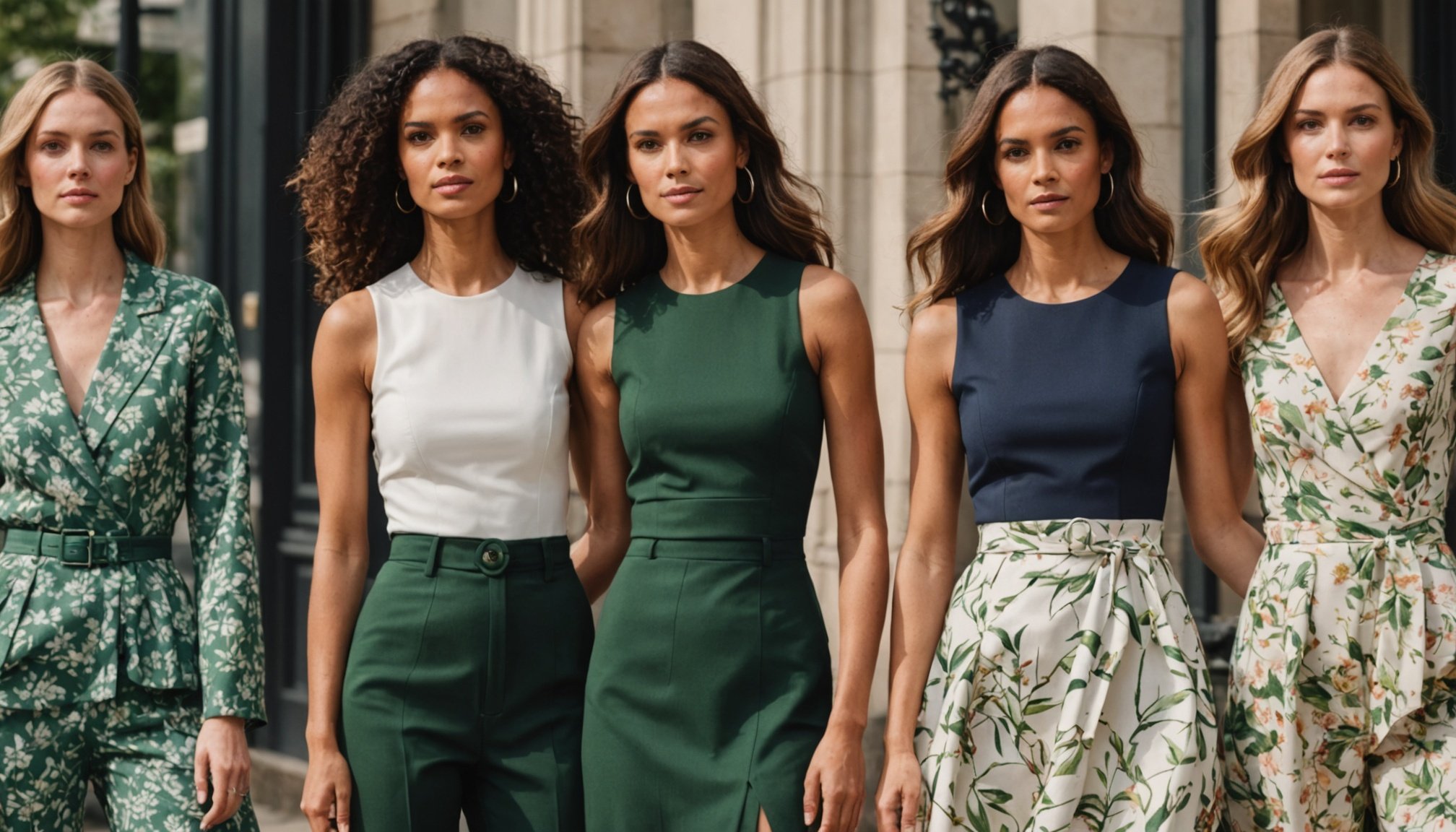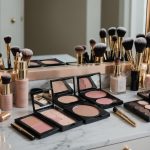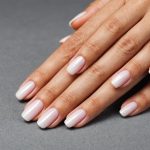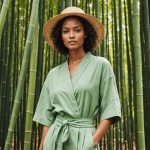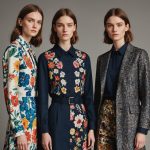Unveiling the New Wave of Eco-Friendly Fabrics Transforming Women’s Fashion Trends in the UK
The fashion industry, long criticized for its environmental and social impact, is undergoing a significant transformation, particularly in the UK. At the forefront of this change are innovative, eco-friendly fabrics that are redefining women’s fashion trends. Here, we delve into the world of sustainable fashion, exploring the brands, materials, and practices that are making a positive impact.
The Rise of Sustainable Fashion
Sustainable fashion is no longer a niche concept; it has become a mainstream movement. Consumers are increasingly aware of the environmental and social consequences of their purchasing decisions, driving demand for clothing that is both stylish and sustainable.
Have you seen this : Unveil your beauty with younique makeup must-haves
“Sustainability is not just a trend; it’s a necessity,” says Safia Minney, founder of People Tree, a pioneering UK-based sustainable fashion brand. “Our customers want to look good, but they also want to feel good about what they are wearing”[2].
Eco-Friendly Fabrics: The New Frontier
The heart of sustainable fashion lies in the use of eco-friendly fabrics. Here are some of the key materials transforming the industry:
Also read : Ultimate guide to chic winter accessories: how to stay fashionable and cozy this season
Organic Cotton
Organic cotton is one of the most popular sustainable fabrics. Brands like People Tree, Beaumont Organic, and Rapanui are leading the way by using GOTS-certified organic cotton in their collections. Organic cotton is grown without the use of toxic pesticides or synthetic fertilizers, making it better for both the environment and the farmers who grow it[1][3].
Recycled Materials
Recycled materials are another significant innovation. Finisterre, for example, uses recycled fabrics and even old fishnets to create high-quality outdoor clothing. This approach reduces waste and the demand for new raw materials[1].
Biodegradable Fabrics
Biodegradable fabrics are becoming increasingly popular. Rapanui’s use of biodegradable materials in their minimalist collection of hoodies and t-shirts is a prime example. These fabrics can easily decompose, reducing the amount of textile waste that ends up in landfills[1].
Natural Fibres
Natural fibres such as bamboo, hemp, and lyocell are also gaining traction. Brands like Nancy Dee and Vege Threads use these materials for their ethical and sustainable clothing lines. These fibres are often more sustainable than traditional cotton and have lower environmental impacts[3][5].
Leading Sustainable Fashion Brands in the UK
Several UK-based brands are at the forefront of this sustainable fashion revolution. Here are a few notable examples:
People Tree
People Tree is a UK-based brand that has been a pioneer in sustainable fashion for decades. Known for their ethical production practices and use of organic cotton, People Tree supports artisans from developing countries and ensures fair wages and good working conditions throughout their supply chain[1][2].
Stella McCartney
Stella McCartney is a luxury sustainable brand that uses eco-friendly practices in all aspects of their design. From plant-based products to recycled polyester and organic cotton, Stella McCartney’s commitment to sustainability is evident in every piece of clothing they produce[1].
Ninety Percent
Ninety Percent is a London-based brand that donates 90% of its profits to charities. Their approach to producing timeless designs encourages less consumption and supports positive change through fashion. Their clothes are made to last, using a variety of sustainable materials[1].
Table: Comparative Overview of Sustainable Fashion Brands in the UK
| Brand | Key Materials | Sustainability Practices | Size Range | Price Range |
|---|---|---|---|---|
| People Tree | Organic Cotton, Recycled Materials | Fair Trade, Hand Weaving, Hand Embroidery | 6-18 UK sizes | £ – £££ |
| Stella McCartney | Organic Cotton, Recycled Polyester | Vegan, Plant-Based Products, Eco-Friendly Practices | Various | ££££ |
| Ninety Percent | Sustainable Materials | Donates 90% of Profits to Charities, Timeless Designs | Various | ££ – £££ |
| Finisterre | Organic Cotton, Recycled Fabrics | Closed-Loop Manufacturing, Renewable Energy-Powered Production | Various | ££ – £££ |
| Beaumont Organic | Organic Cotton, Linen, Lyocell | Free Repairs, EU-Based Factories with Fair Wages | 8-20 UK sizes | ££ – £££ |
| Komodo | Organic Cotton, Natural Fibres | GOTS-Certified, Vegan, Cruelty-Free, 1% for the Planet | 8-16 UK sizes | ££ |
Impact on the Fashion Industry
The shift towards sustainable fashion is having a profound impact on the industry as a whole.
Reducing Waste
Brands like BEEN London and Elvis & Kresse are pioneering waste reduction through innovative design and upcycling. BEEN London’s approach to cutting square and rectangle panels ensures no waste is produced during the manufacturing process, while Elvis & Kresse transforms decommissioned fire hoses into luxurious accessories[2].
Changing Consumer Behavior
Consumers are becoming more conscious of the environmental and social impact of their fashion choices. This has led to a decrease in fast fashion consumption and an increase in demand for high-quality, sustainable clothing. “Consumers are looking for clothes that not only look good but also do good,” notes the founder of Ninety Percent[1].
Industry Leaders and Supply Chains
Industry leaders are setting new standards for sustainability. Brands are now more transparent about their supply chains, ensuring fair wages and good working conditions. For example, Mother Of Pearl displays the sustainable character of every piece on their website, allowing customers to see the impact of their purchases[2].
Practical Insights and Actionable Advice
For those looking to embrace sustainable fashion, here are some practical tips:
- Invest in Timeless Designs: Opt for clothes that are made to last, reducing the need for frequent purchases.
- Choose Eco-Friendly Fabrics: Look for clothing made from organic cotton, recycled materials, and natural fibres.
- Support Transparent Brands: Buy from brands that are transparent about their supply chains and manufacturing practices.
- Repair and Repurpose: Take advantage of free repair services offered by brands like Beaumont Organic to extend the life of your clothes.
- Shop Second-Hand: Consider shopping at second-hand stores or online platforms to reduce textile waste.
The Future of Sustainable Fashion
As the demand for sustainable fashion continues to grow, we can expect even more innovative materials and practices to emerge.
Circular Fashion
Circular fashion, which involves designing clothes to be recycled or biodegradable, is becoming a key focus. Brands like Hiut Denim and MUD Jeans are already implementing circular fashion practices, such as free repair services and the use of recycled denim[1][3].
Technology and Innovation
Technology is playing a crucial role in sustainable fashion. Brands are using innovative processes like ozone and laser treatments to reduce water usage and environmental impact. For instance, MUD Jeans uses these processes to reduce water usage by up to 75% during the manufacturing of their jeans[3].
The new wave of eco-friendly fabrics is revolutionizing women’s fashion trends in the UK. With brands like People Tree, Stella McCartney, and Ninety Percent leading the way, consumers have a wide range of sustainable and stylish options. As the industry continues to evolve, it’s clear that sustainability is no longer just a trend but a fundamental aspect of the fashion business.
In the words of Stella McCartney, “Sustainability is a journey, not a destination. It’s about making better choices every day to reduce our impact on the planet”[1].
By choosing sustainable fashion, consumers can make a positive impact on the environment and the lives of those involved in the textile industry. As we move forward, it’s exciting to think about the innovations and changes that will continue to shape the future of fashion.

